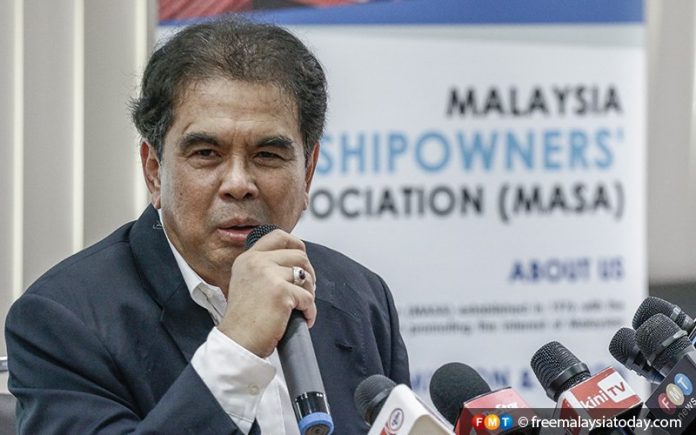
PUTRAJAYA: The Malaysia Shipowners Association (Masa) today expressed the hope that the government’s recent revocation of the cabotage exemption for foreign flagged ships repairing undersea cables will be a long-term policy.
Masa chairman Abdul Hak Md Amin told FMT it would help locals build their capabilities and stimulate competition.
He does not want the decision to be changed again. “Nobody will invest if there are policy flip-flops. Investors will want to be here for the next 20 years if the policies are good (and) I think the government understands this now. The minister is very positive and he wants us to build up our own capabilities,” he added at Masa’s office here.
The cabotage exemption for foreign vessels repairing undersea cables was granted in April 2019 by former transport minister Loke Siew Fook after a request by telecommunication companies such as TIME dotCom Bhd and Telekom Malaysia Bhd.
The exemption, which was revoked on Nov 15, previously allowed foreign companies and vessels to carry out repair work on submarine cables without the need to apply for a domestic shipping licensing exemption.
Hak said the exemption had a counter-productive effect in stimulating competition as all repairs under the cabotage exemption were performed by a single Singaporean company. Hak added that Malaysia’s cabotage policies were also practiced by 91 other countries.
Malaysia currently has one company with the capability to carry out repair work on submarine cables. However, foreign vessels are allowed to carry out undersea cable repairs if a situation arises where local vessels are too far away from the area that needs to be serviced.
“In the industry, cabotage policy has no impact on the price of repairs as repairs are governed by maintenance zones,” said Hak.
“What drives the pricing is the competition between the zones and we believe the current revocation will help stimulate this competition.”



